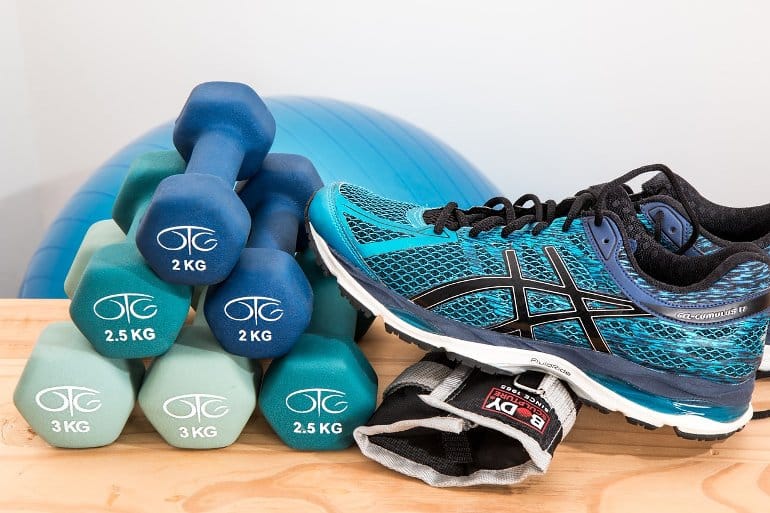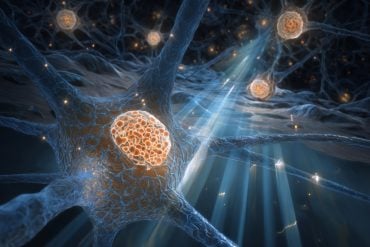Summary: Chemical signals released by muscles during exercise promote neural development in the brain, researchers report.
Source: Beckman Institute
Physical activity is frequently cited as a means of improving physical and mental health. Researchers at the Beckman Institute for Advanced Science and Technology have shown that it may also improve brain health more directly.
They studied how the chemical signals released by exercising muscles promote neuronal development in the brain.
Their work appears in the journal Neuroscience.
When muscles contract during exercise, like the biceps working to lift a heavy weight, they release a variety of compounds into the bloodstream. These compounds can travel to different parts of the body, including the brain. The researchers were particularly interested in how exercise could benefit a particular part of the brain called the hippocampus.
“The hippocampus is a crucial area for learning and memory, and therefore cognitive health,” said Ki Yun Lee, a Ph.D. student in mechanical science and engineering at the University of Illinois Urbana-Champaign and the study’s lead author. Understanding how exercise benefits the hippocampus could therefore lead to exercise-based treatments for a variety of conditions including Alzheimer’s disease.
To isolate the chemicals released by contracting muscles and test them on hippocampal neurons, the researchers collected small muscle cell samples from mice and grew them in cell culture dishes in the lab. When the muscle cells matured, they began to contract on their own, releasing their chemical signals into the cell culture.
The research team added the culture, which now contained the chemical signals from the mature muscle cells, to another culture containing hippocampal neurons and other support cells known as astrocytes.
Using several measures, including immunofluorescent and calcium imaging to track cell growth and multi-electrode arrays to record neuronal electrical activity, they examined how exposure to these chemical signals affected the hippocampal cells.
The results were striking. Exposure to the chemical signals from contracting muscle cells caused hippocampal neurons to generate larger and more frequent electrical signals—a sign of robust growth and health. Within a few days, the neurons started firing these electrical signals more synchronously, suggesting that the neurons were forming a more mature network together and mimicking the organization of neurons in the brain.
However, the researchers still had questions about how these chemical signals led to growth and development of hippocampal neurons. To uncover more of the pathway linking exercise to better brain health, they next focused on the role of astrocytes in mediating this relationship.
“Astrocytes are the first responders in the brain before the compounds from muscles reach the neurons,” Lee said. Perhaps, then, they played a role in helping neurons respond to these signals.

The researchers found that removing astrocytes from the cell cultures caused the neurons to fire even more electrical signals, suggesting that without the astrocytes, the neurons continued to grow—perhaps to a point where they might become unmanageable.
“Astrocytes play a critical role in mediating the effects of exercise,” Lee said. “By regulating neuronal activity and preventing hyperexcitability of neurons, astrocytes contribute to the balance necessary for optimal brain function.”
Understanding the chemical pathway between muscle contraction and the growth and regulation of hippocampal neurons is just the first step in understanding how exercise helps improve brain health.
“Ultimately, our research may contribute to the development of more effective exercise regimens for cognitive disorders such as Alzheimer’s disease,” Lee said.
In addition to Lee, the team also included Beckman faculty members Justin Rhodes, a professor of psychology; and Taher Saif, a professor of mechanical science and engineering.
About this neuroscience and exercise research news
Author: Melinh Lai
Source: Beckman Institute
Contact: Melinh Lai – Beeckman Institute
Image: The image is in the public domain
Original Research: Closed access.
“Astrocyte-mediated Transduction of Muscle Fiber Contractions Synchronizes Hippocampal Neuronal Network Development” by Ki Yun Lee et al. Neuroscience
Abstract
Astrocyte-mediated Transduction of Muscle Fiber Contractions Synchronizes Hippocampal Neuronal Network Development
Exercise supports brain health in part by enhancing hippocampal function. The leading hypothesis is that muscles release factors when they contract (e.g., lactate, myokines, growth factors) that enter circulation and reach the brain where they enhance plasticity (e.g., increase neurogenesis and synaptogenesis). However, it remains unknown how the muscle signals are transduced by the hippocampal cells to modulate network activity and synaptic development.
Thus, we established an in vitro model in which the media from contracting primary muscle cells (CM) is applied to developing primary hippocampal cell cultures on a microelectrode array.
We found that the hippocampal neuronal network matures more rapidly (as indicated by synapse development and synchronous neuronal activity) when exposed to CM than regular media (RM).
This was accompanied by a 4.4- and 1.4-fold increase in the proliferation of astrocytes and neurons, respectively. Further, experiments established that factors released by astrocytes inhibit neuronal hyper-excitability induced by muscle media, and facilitate network development.
Results provide new insight into how exercise may support hippocampal function by regulating astrocyte proliferation and subsequent taming of neuronal activity into an integrated network.






